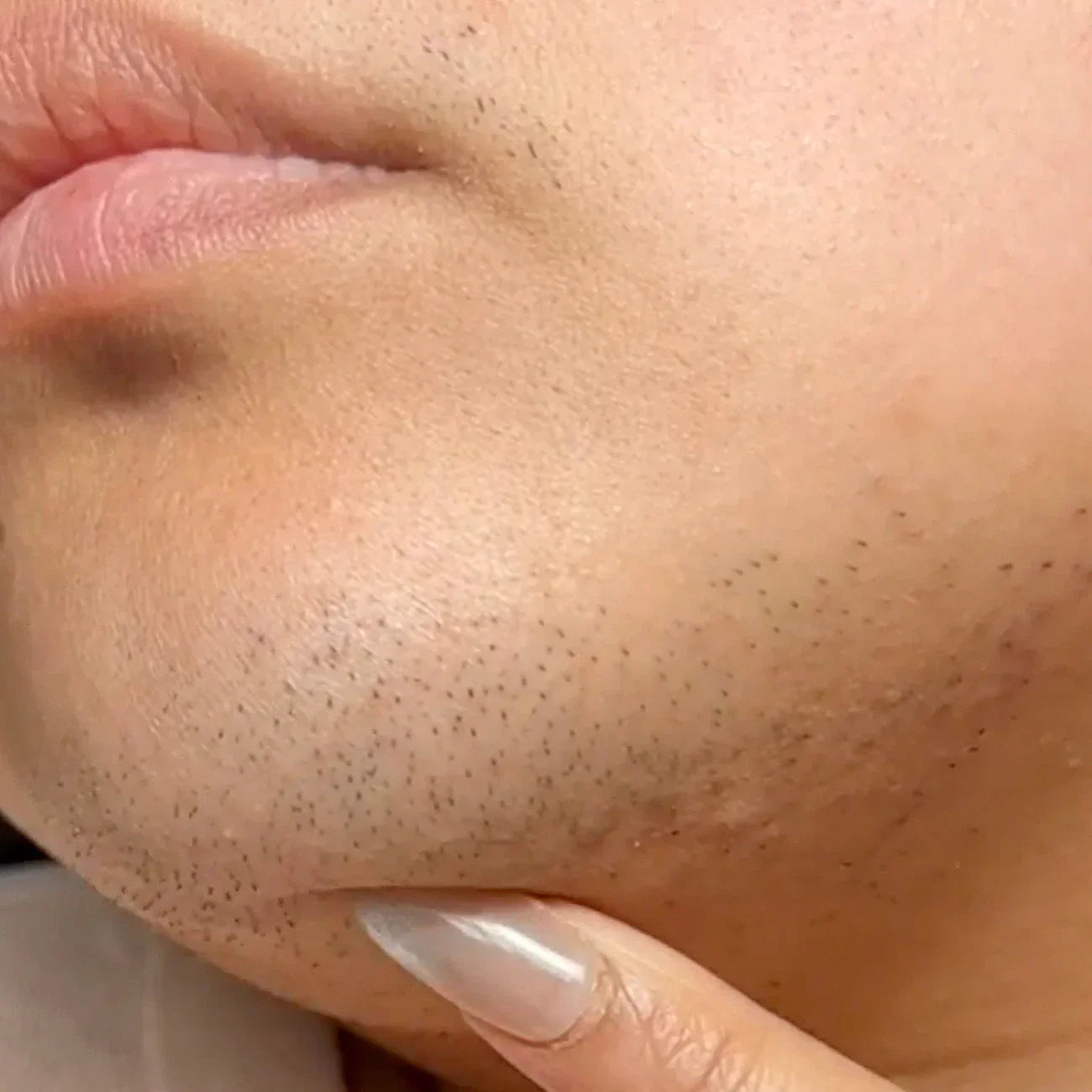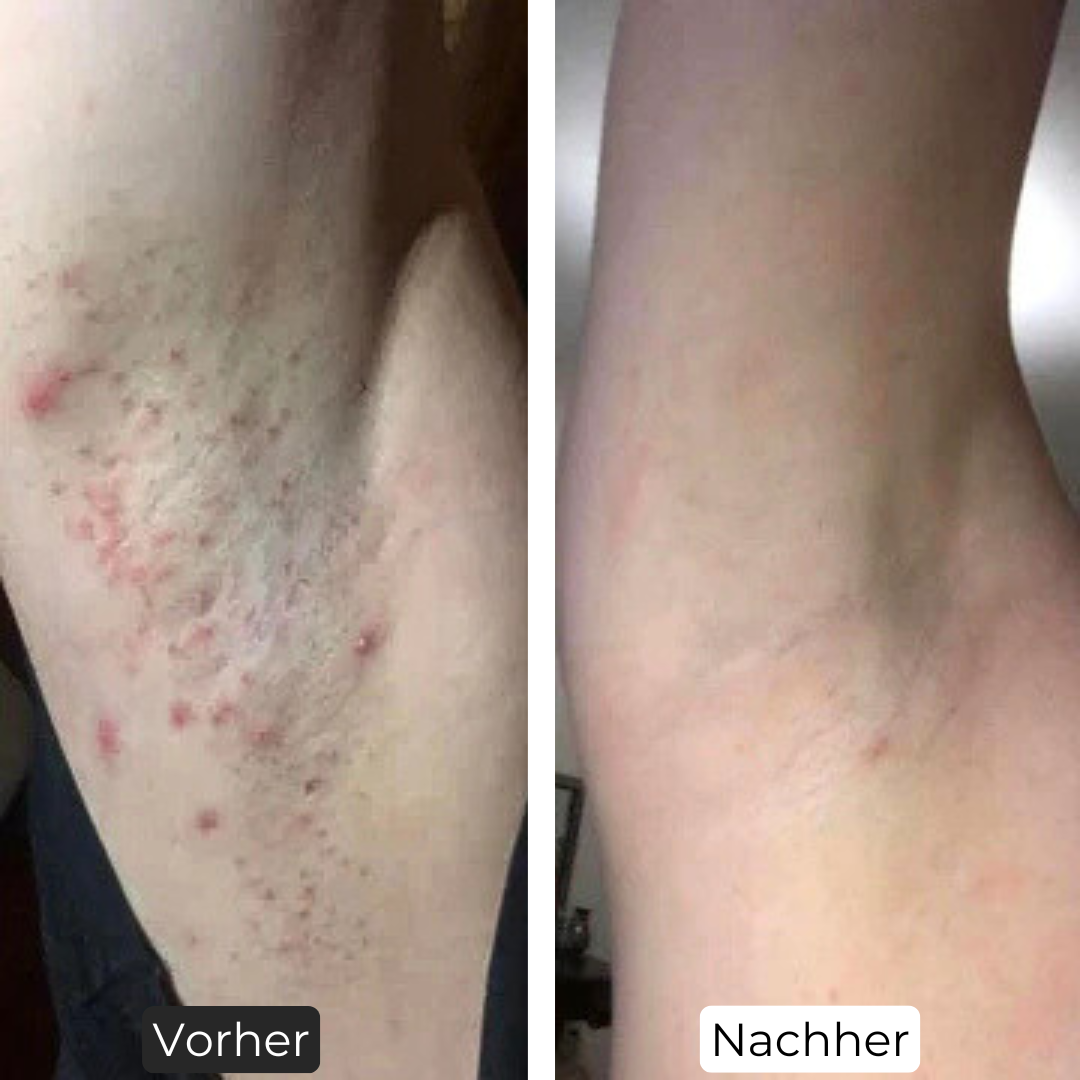Hypertrichosis (excessive hair growth) vs. hirsutism (hormonally induced hair growth)
You know you're "hairy on it"... but why exactly?
If you only see the symptom - hair everywhere - it is often difficult to identify the cause. You may be suffering from hypertrichosis (generalized excessive hair growth) or hirsutism (hormonally induced male pattern hair growth in women).
The difference is important - because this is the only way to find the right treatment to get hair growth under control permanently.
🔍 What is the difference between hypertrichosis and hirsutism?
| Criterion | Hypertrichosis | Hirsutism |
|---|---|---|
| Hair distribution | Full body or limited areas | Only androgen-dependent zones (e.g. face, chest, back) |
| Cause | Genetics, medication, diseases, hormones, malnutrition | Always hormonal (increased androgens) |
| Affected parties | Men, women, children | Women and children only |
| Accompanying symptoms | Varies depending on the cause | Acne, deep voice, irregular cycle |
| Treatment | Treat cause, hair removal | Hormone treatment + hair removal |
🧬 What is hypertrichosis?
Hypertrichosis refers to unusually strong hair growth in areas where there is normally no or only fine body hair. The condition can occur locally or all over the body - in both men and women. A rare form is congenital hypertrichosis, also known as "werewolf syndrome", in which the entire body is covered with thick, dark hair.
More often, hypertrichosis develops later in life - due to medication, hormonal changes, illness or malnutrition. If the cause is treated, hair growth can also normalize. Hair removal also helps with symptom management.
🧪 What is hirsutism?
Hirsutism only affects women and children and manifests itself as increased hair growth on the face, back and chest - areas that are normally androgen-dependent. Common cause: too many male hormones (androgens), often in connection with PCOS.
Typical side effects are
-
Acne
-
Deeper voice
-
Irregular period
Treatment: Hormone balancing (e.g. contraceptive pill) + hair removal
⚖️ Hirsutism or hypertrichosis - what do you have?
-
If you have excessive hair growth all over your body or in unusual places → hypertrichosis
-
If you suffer from PCOS and, for example, develop beard growth → hirsutism (special form of hypertrichosis)
A doctor can help you diagnose the exact cause.
✂️ How can excessive hair growth be treated?
-
Treat the cause:
Have hormonal causes, medication or illnesses clarified. -
Hair removal:
Traditional methods such as shaving, waxing or depilatory creams usually only provide short-term relief. -
Permanent hair removal:
-
Laser or electrolysis: Effective, but expensive (up to €5,000) and time-consuming.
-
Shinie IPL: Our IPL device for home use is CE-certified, safe and effective. It removes hair permanently in just 6-12 weeks - even in cases of severe hair growth due to hypertrichosis or hirsutism. And at a fraction of the cost of professional treatment.
-















